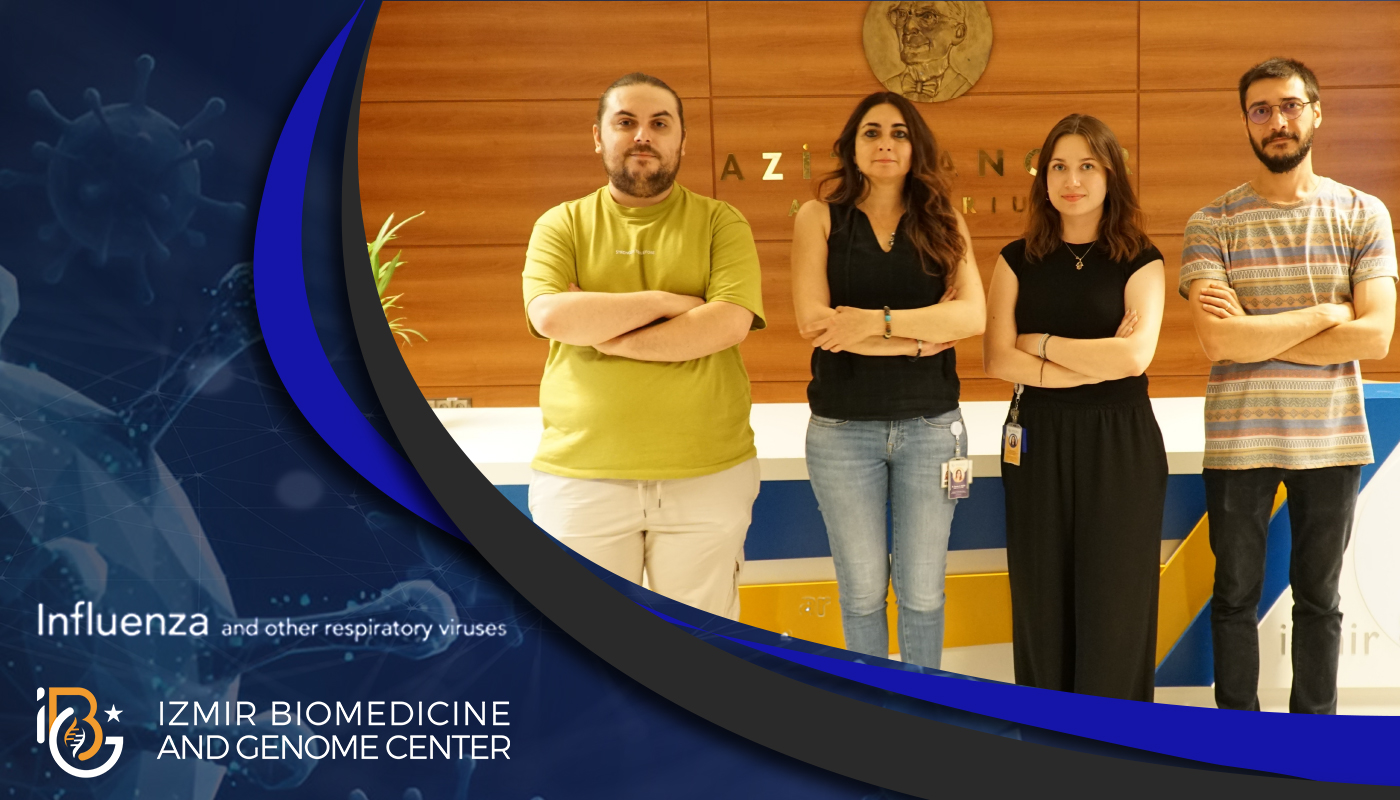Genetic evolution of seasonal influenza A viruses in Türkiye

Genetic evolution of seasonal influenza A viruses in Türkiye
The recent study by Dr. Zeynep Ahsen Koçer, Research Group Leader of the Emerging Viral Diseases Laboratory at Izmir Biomedicine and Genome Center, and her PhD students M. Ekin Azbazdar, Mert Dikmenoğulları, and Zeynep Kavalcı, published in Influenza and Other Respiratory Viruses (Q1, IF: 4.2), presents significant findings on the evolutionary dynamics of seasonal influenza A viruses circulating in Türkiye.
In this study, genetic changes in the hemagglutinin genes of H1N1 and H3N2 influenza A viruses between 2017 and 2023 were examined, both among interseasonal virus populations, as well as in comparison to the vaccine strains used in the respective seasons. Additionally, selection pressure on amino acid positions within antigenic and non-antigenic regions of the hemagglutinin gene was investigated. The results revealed that a non-antigenic amino acid position in H1N1 viruses was under positive selection. In silico analyses further suggested that this position may play a critical role in the stability of the hemagglutinin protein of H1N1 viruses. These findings are important for understanding the temporal changes and structural differences in the hemagglutinin protein, which may impact virus fitness, immune escape, and ultimately the effectiveness of seasonal influenza vaccines.